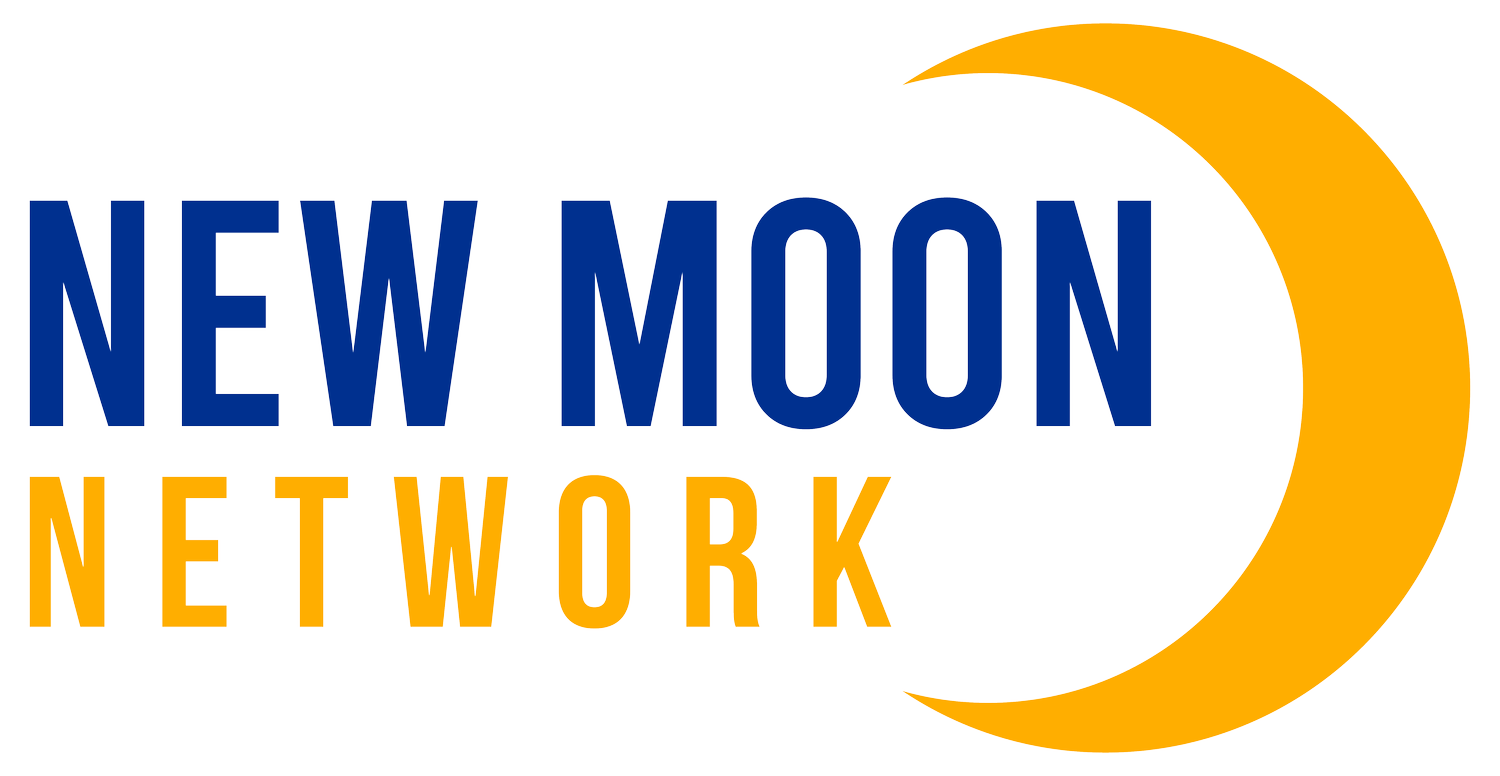Anti-Trafficking & Violence Prevention
The conflation of consensual adult sex work with human trafficking has led to confusion about how to best advance the welfare of people connected to or affected by the sex trade. New Moon uplifts the agency and rights of sex workers while supporting survivors; we believe this is critical for addressing issues of abuse and oppression within the sex trade. To that end, it is critically important to make distinctions between the following terms:
Sex trade
A global economy, ranging in formality and legality, encompassing a variety of sexual and erotic commercial transactions.
Sex work
The exchange of sexual and erotic services (escorting, stripping, pornography, etc.) for money or something of value. Certain types of sex work are currently legal in the USA, including porn performance, stripping, and Nevada brothel work.
Sex trafficking
Under U.S. federal law, sex trafficking is defined as the recruitment, harboring, transportation, provision, obtaining, patronizing, or soliciting of a person for the purpose of a commercial sex act in which a commercial sex act is induced by force, fraud, or coercion, or in which the person induced to perform such act has not attained 18 years of age (DOJ).
Understanding the difference between consensual sex work and sex trafficking is a critical first step in acknowledging the self-determination and bodily autonomy of people in the sex trade.
Sex work and sex trafficking are used interchangeably in public policy
and popular discourse,
but they are not the same thing.
“Where sex work has been decriminalized, sex workers and trafficking survivors are afforded human rights. Trafficking, exploitation, and violence against women decrease sharply”
FAQ: Causes of Violence & Exploitation
When trying to understand violence and exploitation in the sex trade, it’s important to identify root causes of vulnerability as well as factors under which harm can proliferate. Below are some causes and example of violence in the sex trade, as well as proposed solutions.
What makes people vulnerable to violence and exploitation in the sex trade?
Gender, class, race, environment, sexual orientation, poverty, discrimination, and immigration status all play a critical role.
Criminalization: Human Rights Watch cites the criminalization of sex work as a primary factor in the endangerment of people in the sex trade. In places where sex work is illegal, sex workers are unlikely to report crimes committed against them to law enforcement due to fear of arrest and extortion by abusive police officers. Reporting crimes committed against sex workers tend to be deprioritized by police in places where sex workers are seen as criminals and pariahs.
Survivors are also prevented from reporting crimes under criminalization and are frequently arrested. Freedom Network paper quotes.
How do we stop sex trafficking?
According to the FBI, nearly 90% of the federal government’s $24 million “trafficking prevention” budget was used to arrest consensual adult sex workers rather than to detect traffickers or assist victims. In 2020, prostitution related offenses outnumbered those related to trafficking in the sex trade 38 to 1 (FBI’s 2020 Uniform Crime Report (UCR). This illustrates a policy failure.
Evidence-based policy solutions include decriminalization of prostitution and prostitution-related charges, increasing anti-poverty efforts and access to social services, health services, and housing.
Sex workers must be partners in development of interventions (link to Durbar)
Recentering Sex Workers in Anti-Trafficking Work (Freedom Network)
We won’t be able to end sex trafficking until we can end abuses in other sectors, such as agriculture, or domestic violence.
How can we prevent youth from entering the sex trade?
John Jay study
Addressing abuse at home
What Philanthropy Can Do
-
When communities are stable and resilient, individuals are less likely to be exploited. Investing in housing, access to healthcare, and work advancing the rights of people likely to effected by trafficking will reduce opportunities for exploitation.
-
Sex workers are uniquely positioned to help prevent sex trafficking. Therefore, institutions, individuals, family foundations, and social ventures should invest time and renewable resources into sex worker and survivor-led initiatives.
INCLUDE OSF REPORT HERE. Sex workers get <1% of foundation funding.
New Moon can help you and your team find the best organizational or project fit for your charitable giving. Our team is led by people with a range of experience in the sex trade, as well as nonprofit management, research, and social movement justice. We fund programs that are designed for and led by survivors of exploitation and sex workers alike to have the impact for well-being and human rights for people in the sex trade.
-
If working with and funding sex worker led groups is not something you’re ready to do, follow these guidelines to ensure that your anti-trafficking funding isn’t doing harm:
1. Do not fund organizations that deny the existence of sex workers2. Do not fund organizations that actively strive to criminalize aspects of sex work
3. Do not fund organizations that conflate all sex work with exploitation and trafficking
-
The issue of human trafficking in the sex trade is complex and related to other fields such as migration, poverty, discrimination, and technology. New Moon is here to assist you in your learning journey.
Learn More:
Human Trafficking Is All Around You, This is How it Works - TED
FNUSA: Recentering SW’ers as part of the solution
Definition of Human Trafficking under the United States Justice Department
Policing Sex Work - INCITE! National
Freedom Network’s Recommendations on Decrim
Sex Trafficking definition according to the Centers for Disease Control & Prevention
Office on Trafficking in Persons 2020 Budget, US Department of Health and Human Services
"Decriminalising sex work in New Zealand: its history and impact" by Open Society Foundation
"Why Sex Work Should Be Decriminalized" from Human Rights Watch

